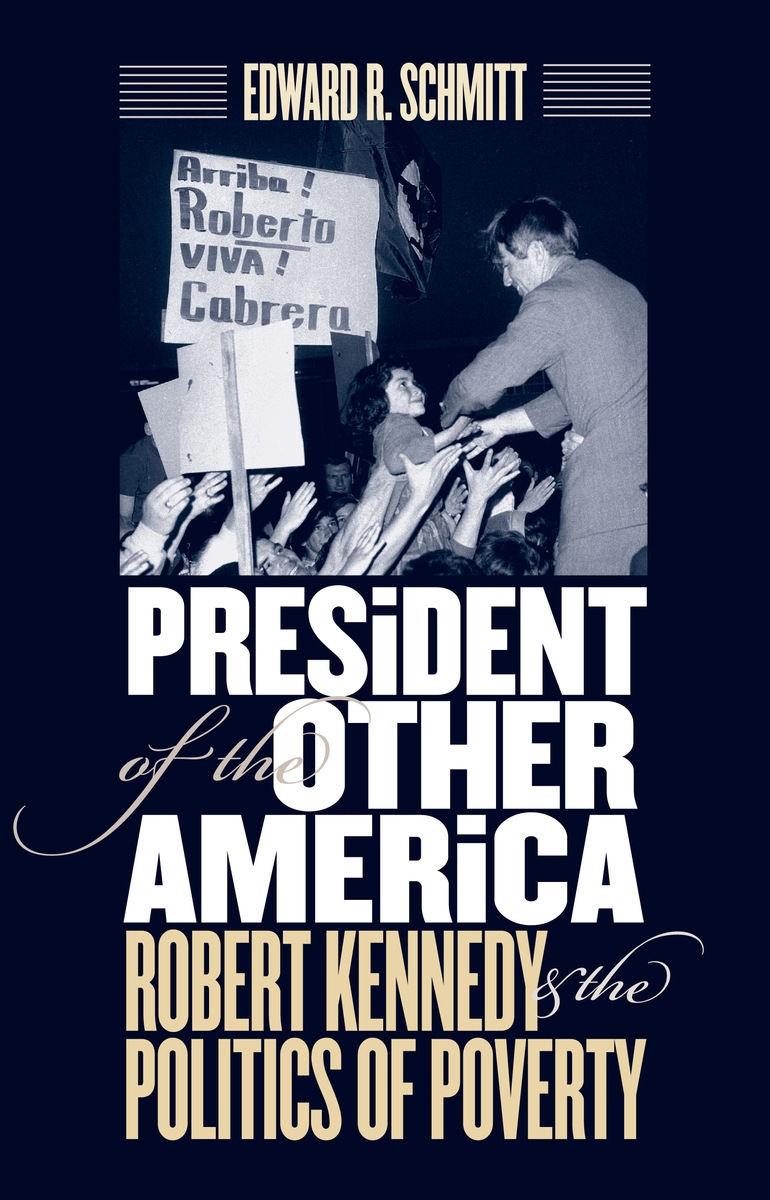President of the Other America: Robert Kennedy and the Politics of Poverty
University of Massachusetts Press, 2010
Paper: 978-1-55849-904-1 | eISBN: 978-1-61376-041-3 (ePub)
See other books on: History & Theory | Military | Other America | President | Robert Kennedy
See other titles from University of Massachusetts Press
Paper: 978-1-55849-904-1 | eISBN: 978-1-61376-041-3 (ePub)
ABOUT THIS BOOK | AUTHOR BIOGRAPHY | REVIEWS
ABOUT THIS BOOK
Robert Kennedy's abbreviated run for the presidency in 1968 has assumed almost mythical proportions in American memory. His campaign has been romanticized because of its tragic end, but also because of the foreign and domestic crises that surrounded it. Yet while most media coverage initially focused on Kennedy's opposition to the Vietnam War as the catalyst of his candidacy, another issue commanded just as much of his attention. That issue was poverty. Stumping across the country, he repeated the same antipoverty themes before college students in Kansas and Indiana, loggers and women factory workers in Oregon, farmers in Nebraska, and business groups in New York. Although his calls to action sometimes met with apathy, he refused to modify his message. "If they don't care," he told one aide, "the hell with them."
As Edward R. Schmitt demonstrates, Kennedy's concern with the problem of poverty was not new. Although critics at the time accused him of opportunistically veering left in order to outflank an unpopular president, a closer look at the historical record reveals a steady evolution rather than a dramatic shift in his politics.
As Edward R. Schmitt demonstrates, Kennedy's concern with the problem of poverty was not new. Although critics at the time accused him of opportunistically veering left in order to outflank an unpopular president, a closer look at the historical record reveals a steady evolution rather than a dramatic shift in his politics.
See other books on: History & Theory | Military | Other America | President | Robert Kennedy
See other titles from University of Massachusetts Press












